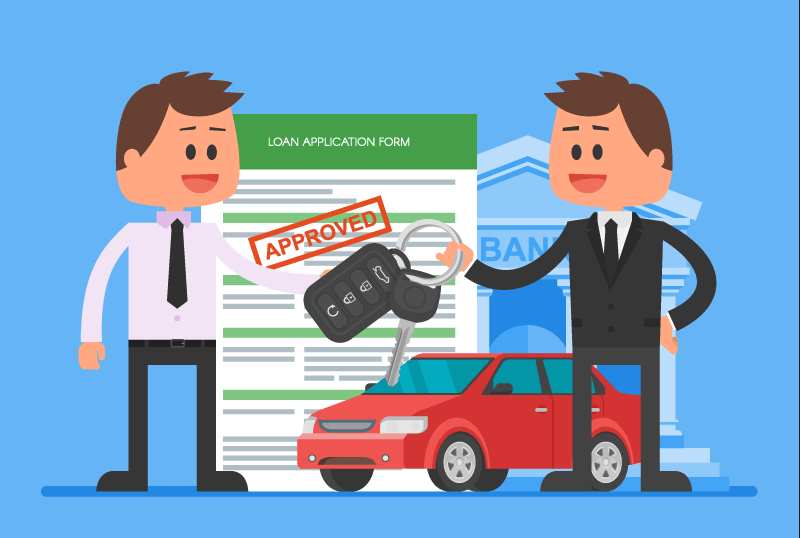Getting a car on finance can be a great way to help spread the cost of owning a car. Car loans allow you to pay for the car you want in affordable monthly payments over a number of years. For many, this means they can afford to get a car which they may not have been able to purchase with a cash amount. Car finance can be really attractive but if you’ve never taken out finance before you may be wondering which agreement is best for you. It’s also worth noting that car finance is never guaranteed, and you may need to pass an affordability or credit check before you can get accepted. Let’s take a look at the most common car loans and how to get the cheapest finance deal.
Buying with cash
When it comes to buying a car, buying with cash can be the cheapest way to get a car. When you buy with cash, there’s no loan involved so you won’t have to pay anything in additional interest. However, many new and used cars can cost thousands of pounds so it may take a while for you to save up for the car you want. This means you may have limited choice compared to getting a car on finance. It may not be the most suitable option if you don’t have a savings fund or if you need a car in a hurry. However, if you do choose to buy a car with cash, you are the legal owner of the car from the offset so you can modify and sell the car whenever you like. You also don’t have to worry about meeting monthly payments and your credit score won’t be affected.
Personal loan
A personal loan is a simple way to finance your next car and can be the cheapest way to finance a car, after cash. Personal loans can be provided by banks, building societies and finance providers but can be better suited to those with good credit scores. If you have a low credit score, it may be harder to obtain a personal loan. Personal loans can be used to buy anything you want. You would apply for a set amount and if accepted, it will be deposited into your bank account. You can then use this amount to get a car you want. You then make fixed monthly payments each month till the end of the agreed term. You own the car from the start of the agreement and can sell the car if needed. However, if you sell the car before the term is up, you will still need to make the repayments on the loan.
Hire purchase
Hire purchase is a straightforward type of car loan. Hire purchase is a secured loan which means the loan is set against the vehicle. You make fixed monthly payments to cover the full cost of the car you want until the end of the agreed term. Hire purchase agreements can be taken out over 1-5 years. Once the final payment has been made, only then will you become the owner of the car. HP deals can be a good choice when it comes to car finance for bad credit. This is because the loan is secured against the vehicle and the lender owns the car throughout the agreement. If you fail to meet your repayment deadlines, the lender has the right to take the car off you.
Personal Contract Purchase
Personal Contract Purchase is a form of Hire Purchase, but you don’t cover the cost of the whole car you choose. Instead, you only cover part of the cost in the form of a loan from the lender. At the end of the agreement, you can either hand the car back to the dealer, use the value towards a new PCP deal on a different car or you can pay the large balloon payment and keep the car. Most people don’t have the funds available to pay the final payment so you can choose to refinance a balloon payment too. PCP deals tend to offer lower monthly payments than other options and can provide more flexibility from your car loan.
Which option is cheapest?
The type of car loan you choose can be determined by a few factors and can reflect how much you pay for finance.
Interest rate
It’s worth noting that you will have to pay interest on personal loans, hire purchase and personal contract purchase deals. The interest rate you are offered can determine how much you will pay back overall. A higher interest rate means you will pay more than those who are offered a lower APR. Factors such as deposit contribution, credit score and length of loan term can your interest rate offered.
Deposit contribution
Some car finance agreements require you to put down a deposit before you are accepted for finance, and it can be beneficial to have a deposit to hand when applying for car loans. Putting more in means you don’t have to borrow as much from the lender and can make your car loan cheaper. A bigger deposit can help to reduce your monthly payments and lower your interest rate offered.
Credit score
Most car loan lenders will require you to pass a credit check before they accept you for finance. Your credit score reflects which type of borrower you have been in the past and making late repayments or missing payments altogether can negatively impact your credit score. It may also make lenders see you as more of a risk and they may not accept you for finance. If they do, you may be offered a higher interest rate than those with better credit.
